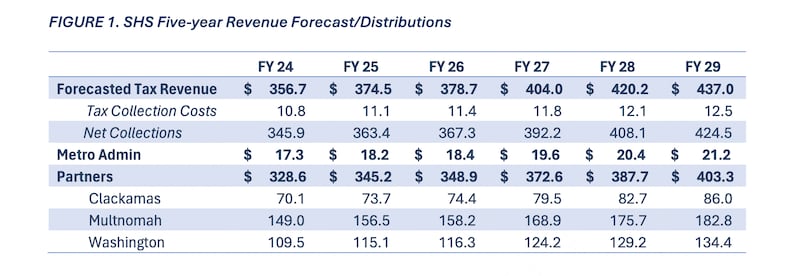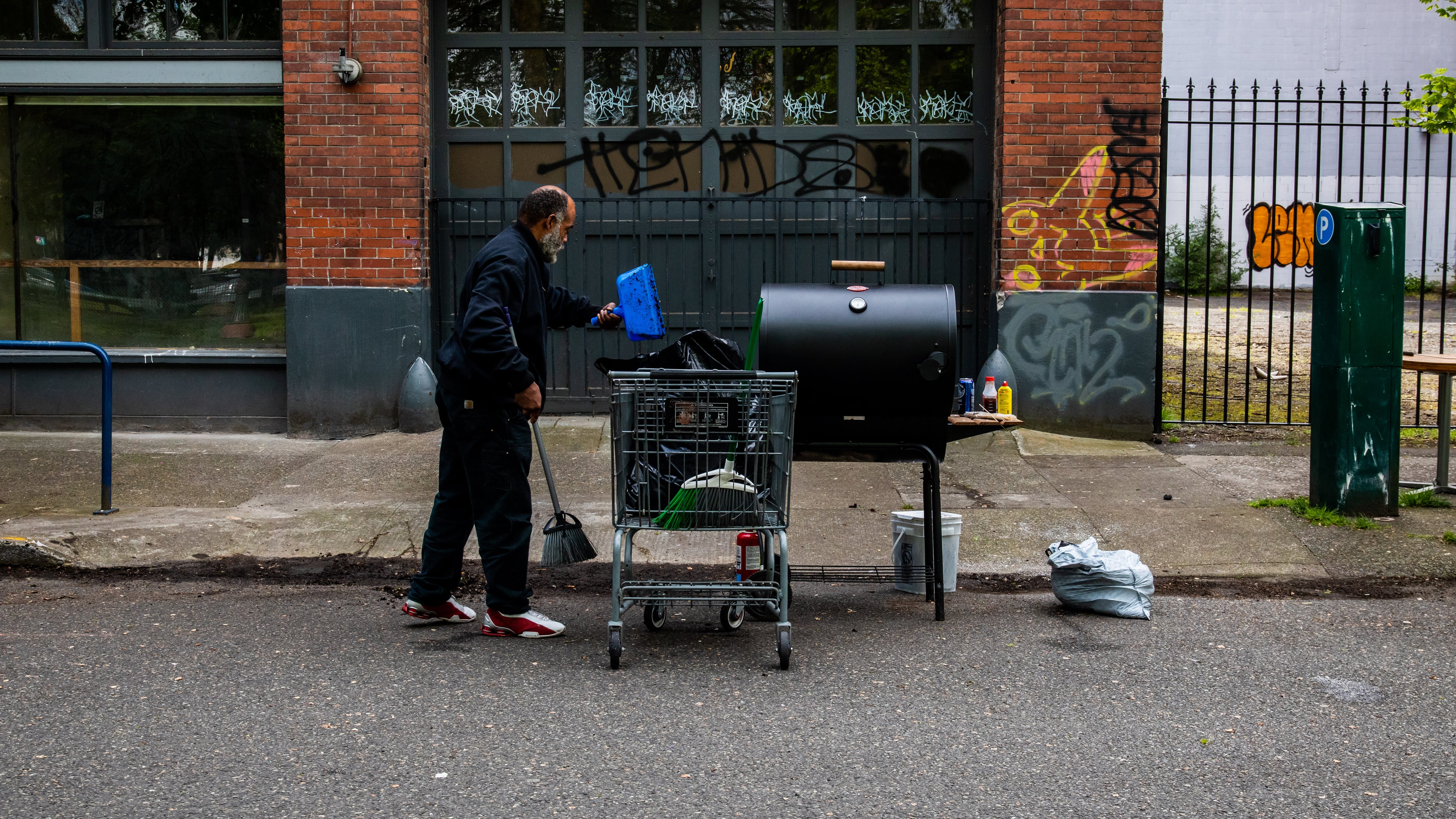The second meeting of the Regional Housing Stakeholder Advisory Table opened with a bang yesterday.
Regional government Metro convened the panel to consider whether to divert some of the Metro homeless services tax to the development of affordable housing. But yesterday, the chairs of the three affected counties—Clackamas, Multnomah and Washington—presented a joint letter arguing the concept is flawed from the outset.
That concept, as WW has previously reported, is to divert some of the revenue from the supportive housing services tax back to Metro, which would use the money for bricks and mortar rather than services.
The rationale: Metro’s 2018 housing bond, which raised $652.8 million to subsidize affordable housing in the tri-county region, is fully committed to projects, even as the region remains woefully short of affordable housing. Meanwhile, the supportive housing services tax, which voters passed in 2020 to alleviate widespread homelessness, has generated far more money than the original forecast of $250 million a year (see below), and economists believe the upward trajectory will continue through the 10-year life of the tax.
The bountiful tax revenues have meant the three counties have struggled to spend their allocations.

Nonetheless, in their joint letter yesterday, County Chairs Tootie Smith (Clackamas), Jessica Vega Pederson (Multnomah) and Kathryn Harrington (Washington) said there is no surplus for Metro to divert to housing construction.
“The cost to sustain current investments in ongoing services and capacity in each county will consume all available SHS forecasted revenue,” the three chairs wrote. “There is a myth that the counties collectively are sitting on significant amounts of unallocated funding, but that’s not true.”
The chairs say they have plans to spend the money that has and will come in and want a chance to explain their plans to Metro and other stakeholders.
That will be an interesting conversation, because Metro, which administers and oversees the SHS tax, presented numbers yesterday showing that it expects the counties to conclude the fiscal year that ends June 30 with a boatload of unspent SHS dollars—i.e., the surplus is no myth.
It comes to $104 million for Clackamas County, $145 million for Multnomah County, and $150 million for Washington County, not to mention $32 million left in Metro’s coffers (the agency gets 5% of SHS tax receipts). That means there will be $431 million sitting in the bank at year’s end—with $375 million of new money expected to pour in next year.
Metro began the process of discussing reallocating some of the SHS tax to housing with the idea of putting the question to voters in November. After two meetings, that is still the plan, although the chairs’ letter yesterday makes it clear they will fight to hold on to all of the money.
The panel meets again April 3.
